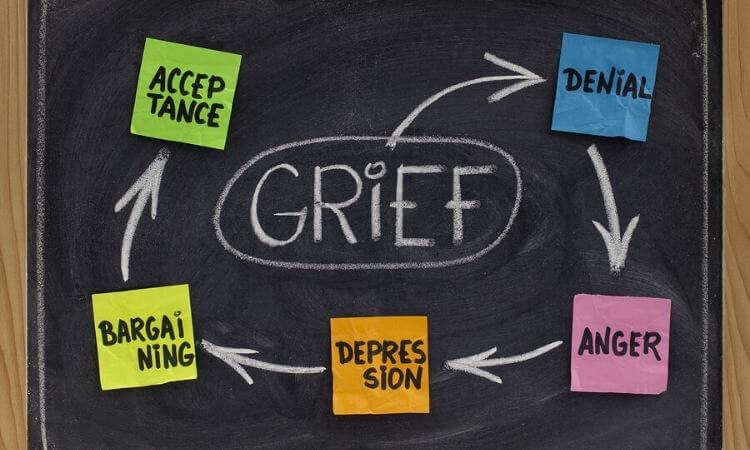
Grief and loss are normal, albeit unpleasant feelings that most people will experience at least once in their lives. Many profound changes can cause an individual to experience grief or loss. For people who have suffered this type of emotional pain, grief counseling can be extremely beneficial. Events that may result in grief include, but are not limited to, the following:
- Death of a loved one, such as a spouse
- Adverse changes in one’s health
- Adverse changes in the health of a loved one
- Marital separation or divorce
- Adverse changes in interpersonal relationships
- Marriage
- Incarceration
- Personal injury or illness
- Losing a job or changing one
- Change in responsibilities at work
- Adverse changes in financial status
- Retirement
- Pregnancy
- Sexual dysfunction
- Child leaving home and “empty nest” syndrome
- Spouse starts or stops work
- Beginning or ending school
- Changes in living conditions or residence
- Destruction caused by a natural disaster
- Loss of trust, approval, or safety
These are just a few common potential causes for grief, but the list is nearly endless. Any change in a person’s life that is perceived as significant or adverse or forces them to leave something cherished behind can lead to emotional pain and feelings of loss.
How Grief Is Related to Addiction
Though destructive, substances and addictive behaviors may offer comfort and respite from unpleasant emotions. Drugs and alcohol can be used to fulfill a need, at least temporarily, regardless of how unhealthy they are. Even people who have not used substances historically to excess may find themselves picking up a bottle of liquor or buying illegal drugs. People who are in recovery from an addiction are at an even higher risk of doing so.
Furthermore, it is not uncommon for a person to experience grief when confronting the possibility that they need treatment for substance abuse. Even those who are very motivated to recover may have these feelings, as they realize that they need to make dramatic lifestyle changes and put many aspects of their former lives behind them. Doing this is not so easy for many people.
Moreover, walking without using the emotional crutch of substance abuse can be frightening. This fear is especially palpable when the person realizes that there is no immediate substitute, only dedication and active maintenance until the end of their lives. People in recovery who experience grief need to be provided with effective tools to manage these feelings, or the possibility of a new way of living may seem impossible.
Sometimes these feelings don’t float to the surface until after the person is in recovery for a short time. Substances tend to stunt emotions, and even after initial withdrawal symptoms have subsided, feelings of grief, anxiety, and depression can manifest. Regardless of when they occur, they will be unpleasant and must be addressed immediately to prevent relapse.
Common feelings of grief and loss associated with entering recovery include the following:
- Strained or severed relationships
- Loss of trust
- Loss of a job due to addiction or the need to enter rehab
- Being forced to examine the harm that addiction caused to oneself and others
- Being forced to endure grief and loss formerly blunted by substances
- Feelings of abandonment from others caused by a person’s addiction
Models of Grief
The experience of grief is unique and personal for each individual. However, there appear to be universal trends in how people tend to cope with loss. Psychologists and other researched have devised various models of grief. One of the most familiar models is what is known as the five stages of grief. Many counselors and therapists have leaned on this model to help a person work through their feelings at various times.

The Five-Stage Model
Elisabeth Kubler-Ross, a Swiss-American psychiatrist, identified five stages of grief that take place chronologically:
1) Denial
2) Anger
3) Bargaining
4) Depression
5) Acceptance
Kubler-Ross believed that everyone experiences at least two of the five stages of grief, and also acknowledged that some might revisit certain stages throughout their lives.
Stage 1: Denial
In simple terms, denial is hallmarked by the inability to accept the change or loss that is occurring. For example, many people who are confronted with an expected death of a loved one report being in disbelief upon hearing the news and even feeling numb.
Denial is more or less a natural defense mechanism to help us deal with extremely distressing emotions, or preventing us from experiencing too many feelings simultaneously. Denial usually fades with time, and the person experiencing it will gradually start to feel more emotions.
Stage 2: Anger
Anger can occur at any time following a stressful event, and feelings related to this anger may persist for years. People are often angry at themselves, God, or a person that was at the center of the grief or loss.
Some people are more adept at managing anger than others. Some may require anger management therapy or bereavement counseling to help them work through anger associated with a significant loss.
Stage 3: Bargaining
Bargaining is associated with praying or offering something in exchange for the loss in an effort to prevent the loss from occurring. For example, a man who cheats on his wife may beg her forgiveness and offer to go to couple’s counseling if she agrees to stay.
Bargaining sometimes works, so we use it as a means of avoiding the loss or maintaining some sense of control. Unfortunately, bargaining is often ineffective, and when we can change the circumstances, the next stage of grief may begin.
Stage 4: Depression
When bargaining isn’t successful and reality hits, a person will often experience intense sadness, hopelessness, and become emotionally unable to attend to normal life responsibilities. Depression may be relatively temporary, or it could advance into a clinical depression that persists for months or years.
Indeed, depression associated with grief can be experienced at various times for the rest of a person’s life. This grief can be seemingly random or be related to holidays, birthdays, or other occasions. It may also be triggered by exposure to certain people, places, or things. This is normal and does not necessarily indicate that one’s emotional health is rapidly declining.
Stage 5: Acceptance

Although acceptance is the final stage, it is not necessarily the end of the process. Acceptance does not mean forgetting the loss or blocking it out emotionally. Rather, acceptance means working through the other stages until you come to a place where you can understand the true depths of your loss and move on emotionally.
Acceptance eventually happens when a person has successfully processed the painful truth that a part of one’s life has been lost. After acceptance, there may be revisits to some stages, but at this point, a person should be allowing him or herself to adjust to and enjoy life again despite the loss.
Grief Counseling and Treatment for Addiction
Midwood Addiction Treatment offers comprehensive treatment programs designed to treat all aspects of a person’s emotional and physical health. These may include feelings of grief, depression, or any number of mental health issues with which a person may be faced.
Grief counseling and other types of therapies, such as cognitive-behavioral therapy, help clients learn to navigate the world without feeling the need to resort to substances or harmful behaviors. They learn healthier, more effective coping skills that will allow them to deal with stressful situations, as well as a caring support system to assist them in this process. Our goal is help our clients bring their lives back into balance so they can process their emotions more productively.
By allowing the ever-changing flow of emotions to be felt and expressed, healing can finally begin, and the emotional void felt by an addict can be filled with a healthier state of being. Contact us today if you are ready to take the first step on the road to recovery and begin to enjoy the life you deserve!